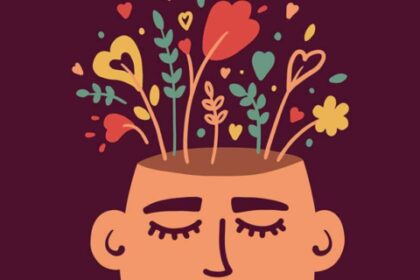In this modern day society we deal with stressors that we write off as ‘everyday life’ and we don’t realize how many micro-stressors effect us, because we ignore them. We live in a world full of both seen and unseen stressors. Seen stressors being the things that we mainly recognize mostly from other humans ‘stressing us out’ but we have many stressors that are unseen in our world.
We live in a world full of pollution, radiation, chemical exposure, electromagnetic stress and so much more. These are all unforeseen stressors on our body, on your lungs, nervous system, heart, digestive system and sleep.
There are different forms of stress that influence our body, and it’s important to understand what organs and systems in our body are influenced by this stress. Here’s a breakdown:
7 Effects Of Stress On The Heart, Digestion & Sleep:
- Effect of Stress on the Heart: Chronic or long-term stress can have adverse effects on the cardiovascular system. When stress levels are consistently high, it can lead to increased heart rate, elevated blood pressure, and over time, contribute to the development of various heart conditions, such as hypertension, heart disease, and an increased risk of heart attacks. Increased cortisol weighs more on the heart.
- Effect of Stress on Digestion: Stress can also influence the digestive system. When you’re under stress, your body goes into “fight or flight” mode, diverting blood away from the digestive organs to support other systems. This can lead to digestive problems, such as stomachaches, cramping, diarrhea, or constipation. Additionally, chronic stress may exacerbate existing gastrointestinal conditions like irritable bowel syndrome (IBS).
- Effect of Stress on Sleep: Stress can significantly impact sleep quality. When you’re stressed, your mind may race with worries, making it difficult to fall asleep. Even if you manage to sleep, the quality of your sleep may be compromised, leading to frequent awakenings throughout the night. Stress can disrupt the sleep cycle, reducing the amount of time spent in restorative REM (rapid eye movement) sleep, which can affect overall health and cognitive function.
- Effect Stress on Neurotransmitters & Brain: Neurotransmitters, the chemical messengers in the brain, are also affected by stress. Stress can alter the balance of neurotransmitters such as serotonin, dopamine, and norepinephrine, leading to changes in mood and behavior. This can contribute to conditions like anxiety and depression. This can also lead to headaches as well.
- Effect of Stress on Appetite: Stress can cause fluctuations in appetite and eating habits. Some individuals may experience increased food cravings and engage in emotional eating as a coping mechanism. On the other hand, stress can also lead to a loss of appetite, resulting in unintended weight loss.
- Effect of Stress on Energy: Chronic stress can leave you feeling physically and emotionally drained. Even after a full night’s sleep, you may still experience persistent fatigue and a lack of motivation to engage in daily activities. Stress-induced fatigue can hinder your ability to cope effectively with everyday challenges.
- Effect of Stress on Social Health: Stress can lead to a desire to isolate oneself from social interactions. You might withdraw from friends, family, and social activities, preferring to be alone rather than facing additional stressors. This social withdrawal can further exacerbate feelings of loneliness and contribute to a sense of disconnection.
If you’re experiencing any of the above symptoms or a combination of the above symptoms pay close attention. There are very specific tactical and strategic steps that you can take in order to calm the state of stress in your body and get your body back into a state of health and vitality.
What’s important to understand is that the nervous system is in either the ‘fight or flight’ response or the ‘rest and digest response. What is the difference between these two states? Let’s explore a bit deeper to discover how to tame your stress and get your body back into a healing state, instead of a diseased state.
Click here to visit Radiate21.com
The Nervous System is in Fight or Flight or Rest & Digest:
The fight or flight response and the rest and digest state are two distinct physiological states regulated by the autonomic nervous system (ANS). The ANS is responsible for controlling involuntary functions in the body, such as heart rate, digestion, and respiratory rate. These two states represent opposite responses to different situations and have varying effects on our overall health and disease susceptibility.
- Fight or Flight State: The fight or flight response is activated in response to perceived threats or stressors. When faced with a danger or stressful situation, the sympathetic nervous system (part of the ANS) is activated, releasing stress hormones like adrenaline and noradrenaline. This triggers a cascade of physiological changes aimed at preparing the body for action. The heart rate increases, blood vessels constrict, blood is redirected to essential organs and muscles, and the release of glucose into the bloodstream provides a quick source of energy.
While the fight or flight response is essential for survival in acute situations, prolonged activation of this state can be detrimental to health. Chronic stress, leading to continuous fight or flight responses, has been linked to various health issues. Increased heart rate and blood pressure over time can strain the cardiovascular system, contributing to heart disease. Suppressed immune function during prolonged stress makes the body more susceptible to infections and illnesses.
In a state of stress, both acute and chronic the fight or flight state of the nervous system is activated. Instead, you want to train your body and nervous system to be in the rest and digest state.
- Rest and Digest State: The rest and digest state, also known as the relaxation response, is the opposite of the fight or flight response. It is activated during periods of relaxation and when the body perceives that there is no immediate threat. In this state, the parasympathetic nervous system (also part of the ANS) is dominant, promoting activities that are essential for maintaining health and restoring balance in the body.
During the rest and digest state, the heart rate slows down, blood vessels dilate, and the body shifts its focus from the external environment to internal processes. This allows for proper digestion, nutrient absorption, and elimination of waste products. Additionally, the immune system functions optimally in this state, protecting the body from infections and diseases.
Health and Disease Implications: The fight or flight state is more disease-prone when it becomes a chronic state. Prolonged stress and continuous activation of the fight or flight response can weaken the immune system, increase inflammation, and negatively impact various bodily systems, making the body more susceptible to illnesses and diseases.
On the other hand, the rest and digest state is more health-prone as it allows the body to recover, repair, and maintain its physiological balance. When the body is in a state of relaxation, it can better resist infections, support healthy digestion, and regulate blood pressure and heart rate. Regularly accessing the rest and digest state through relaxation techniques, mindfulness, and self-care practices can contribute to overall health and well-being.
In conclusion, understanding the difference between the fight or flight response and the rest and digest state highlights the importance of managing stress effectively to promote health and reduce the risk of disease. By incorporating relaxation techniques and stress-reduction strategies into our daily lives, we can support the balance of the autonomic nervous system, allowing our bodies to function optimally and protect against the detrimental effects of chronic stress.
How To Become Stress Adaptive & Get Back into Rest & Digest:
Radiate 21 stands out as an exceptional solution for reducing stress and promoting overall well-being, thanks to its powerful blend of adaptogens like suma and ashwagandha. Adaptogens are natural substances that help the body adapt to stress and restore balance. Suma and ashwagandha, two key adaptogens in Radiate 21, have been shown to effectively combat stress and fatigue, while simultaneously boosting energy levels. By incorporating these adaptogens into the formula, Radiate 21 offers a comprehensive approach to managing stress and supporting vitality.
Multiple clinical trials have indicated that ashwagandha supplementation may reduce perceived stress and anxiety. One study published in the Journal of Alternative and Complementary Medicine in 2019 found that participants who took ashwagandha for eight weeks experienced significant reductions in stress and improved overall quality of life.
While ashwagandha is commonly associated with stress reduction, some studies have also suggested that it may positively impact energy levels and overall vitality. However, the evidence in this area is not as extensive as its stress-reducing effects.
Suma, also known as Brazilian ginseng, is a medicinal plant native to South America. It has been traditionally used to enhance energy levels and combat stress, although the scientific evidence is relatively limited compared to ashwagandha.
Like ashwagandha, suma is considered an adaptogenic herb, meaning it may help the body adapt to stress and maintain balance.
Moreover, Radiate 21 harnesses the potency of chrysanthemum, a flower known for its unique ability to identify and target the cortisol hormone in the blood and pull it out. Cortisol is a stress hormone that, when elevated for extended periods, can have detrimental effects on health. Chrysanthemum aids in pulling out excess cortisol, helping to alleviate stress and promote a calmer state of mind.
If you thought Radiate 21 couldn’t get any better at targeting stress, you’d be surprised to find that perhaps the most unique and remarkable aspect of Radiate 21 lies in its inclusion of four of the world’s top ten ORAC antioxidants in the world. These antioxidants play a crucial role in reducing free radical damage and oxidative stress, which contribute to premature aging and various health issues.
Oxidative stress can come in the form of chemical toxicity, pollution, radiation, EMF’s, seed oils, anything that is causing inflammation, blood sugar spikes and more. ORAC antioxidants help to support the protection from all of these threats that stress the body in various ways influencing gut health, heart health, brain health and more. This is what makes the Radiate 21 formula so powerful and unique at combating stress and increasing energy levels.
By countering these harmful effects, the formula enhances energy and stamina, leading to increased vitality and improved overall health. With its synergistic blend of adaptogens, chrysanthemum’s cortisol-regulating prowess, and potent ORAC antioxidants, Radiate 21 is undoubtedly a game-changer in stress reduction and supporting holistic well-being.
Click here to visit Radiate21.com to learn more.






